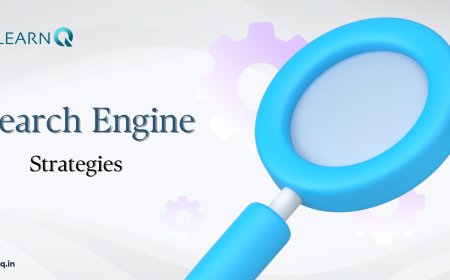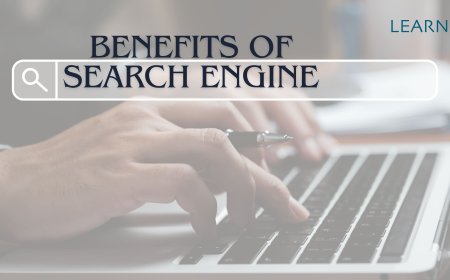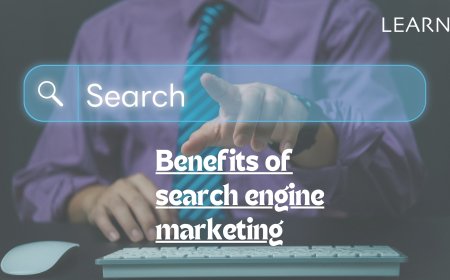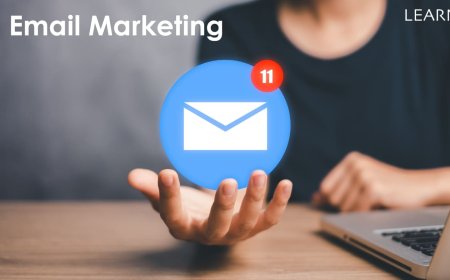Breaking Down SEO: Understanding the Full Form of SEO
Discover the secret of SEO. Understand what SEO stands for and become skilled at improving your website's visibility on search engines for online success.
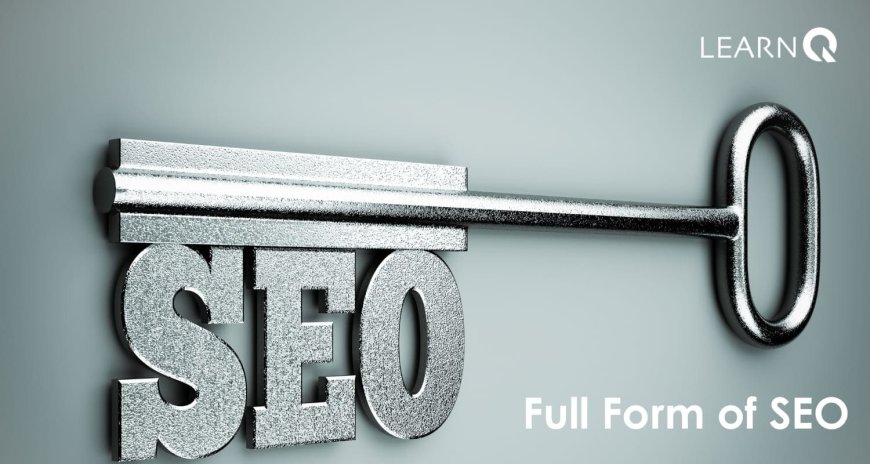
It's essential to know how to make your website visible. One powerful tool for this is Search Engine Optimization (SEO). In this guide, we'll break down SEO step by step to help you understand why it matters and how it works. Digital marketing covers lots of ways to promote things online. From big strategies to small details, everything counts. At the heart of it is SEO, which connects with other important parts of online marketing like SEM, content marketing, and social media.
SEO means making your website better so it shows up higher on search engine results pages. To do this, you need to use the right keywords, optimize your pages, and get good links from other sites. And there's also SEM, where you pay for ads to boost visibility on platforms like Google Ads. we'll not only cover SEO but also touch on content marketing, social media, email marketing, and other key parts of online marketing. Plus, we'll talk about web analytics, digital strategy, and advertising, all important in the online world. Come with us as we explore SEO and its connections to other parts of digital marketing. We'll share tips and strategies to help you succeed online.
Understanding What Full Form of SEO Means
Keeping up with the latest tricks is important for businesses that want to do well on the internet. Among all the different strategies, one big thing to know about is SEO. But what does SEO even stand for? Figuring out the full form of SEO isn't just about knowing what the letters mean. It's about understanding why it's so important for winning in online marketing.
SEO, What it Means:
Let's start by clearing up what SEO stands for. SEO stands for Search Engine Optimization. SEO is all about making your website more visible and higher up on search engine results pages (like Google). This means tweaking different parts of your website—like the content, keywords, and links—to make it perform better in searches.
Understanding SEO: Making Sense of the Complications
Search Engine Optimization (SEO) is important for businesses to get noticed online. But SEO can be tricky to figure out because it's always changing. Let's take a closer look at some of the tough parts of SEO and make them easier to understand.
1. Figuring Out Algorithms:
-
Search engines like Google are always changing how they decide which websites to show first. This makes it hard for marketers to keep up.
-
When algorithms change, it can make a big difference in where a website shows up in search results. So, businesses have to keep adapting and improving their websites.
2. Quality vs. Quantity of Content:
-
It's important to have really good content on a website, but you also need enough of it to stay relevant.
-
Finding the right balance between quality and quantity can be tough. You want content that's helpful to people and uses the right keywords to get noticed.
3. Technical Problems:
-
Sometimes, websites have technical issues like broken links or pages that load slowly. These problems can hurt how well a site shows up in search results.
-
Fixing technical issues requires special knowledge and checking the website regularly to make sure everything is working well.
4. Keeping Up with Competitors:
-
Other businesses are also trying to get noticed online, so it's important to keep an eye on what they're doing.
-
By watching competitors and finding ways to do better, businesses can stay ahead in the online race.
5. Building Links:
-
Having lots of other websites linked to yours is good for SEO. But it can be hard to get those links and make sure they're good quality.
-
It's important to get links naturally and avoid getting in trouble with search engines for trying to cheat.
6. Local SEO:
-
For businesses that serve local customers, it's important to focus on local SEO. This means things like making sure your business shows up on Google Maps and getting good reviews.
-
Managing multiple locations and making sure all the information about the business is consistent can be tricky.
7. Understanding Metrics:
-
There are lots of different numbers and measurements that show how well a website is doing with SEO. It can be overwhelming to figure out which ones are the most important.
-
Setting clear goals and regularly checking data can help businesses know if their SEO efforts are working.
What is SEO, and how can we get better at it?
SEO, which stands for Search Engine Optimization, is all about making your website more visible on search engines like Google. The goal is to get higher up on the search results page so more people can find your site. This involves things like picking the right keywords, making your content better, getting other websites to link to yours, and making sure your website is set up properly for search engines to understand. To understand SEO, you need to know how search engines decide which websites to show first, keep up with what's happening in the SEO world, and try different things to see what works best for your site. You can learn about SEO from online courses, blogs, and forums. It also helps to look at what your competitors are doing and keep track of how well your website is doing in search results. Getting good at SEO takes practice and staying up-to-date with changes in how search engines work.
Understanding the Full Form of SEO Means
In websites and online searches, knowing about SEO can help you get noticed. Whether you're a pro at marketing or just starting with your website, understanding SEO can make a big difference in how many people find your site. Here's a simple guide to help you understand SEO step by step:
1. What Does SEO Stand For?: SEO stands for Search Engine Optimization.
2. What Exactly is SEO?: SEO is about improving your website so that it shows up higher in search engine results like Google. It's making your site more attractive to search engines so they recommend it to people looking for stuff online.
3. Why Does SEO Matter?:
-
Get Seen More: Good SEO helps your website get noticed more in search results, so more people visit it.
-
More Visitors: When your site shows up near the top of search results, more people click on it, bringing you more visitors.
-
Build Trust: Websites that rank higher are seen as more trustworthy, which is important for gaining people's trust.
-
Better User Experience: SEO involves making your site easier to use, which is better for visitors.
-
CostEffective: Unlike paid ads, SEO can give you long-term results without spending lots of money all the time.
4. Important Parts of SEO:
-
OnPage SEO: This means tweaking individual pages on your site to make them rank higher in searches. It involves things like improving content and making sure page titles and links make sense.
-
OffPage SEO: This is stuff you do outside your website, like getting other sites to link to yours or promoting your site on social media.
-
Technical SEO: This is about fixing technical issues on your site to make it easier for search engines to understand and rank it.
-
Good Content: Having helpful, interesting content is a big part of SEO success.
-
Keyword Research: Figuring out what words people use to find things like yours helps you target them better in your content.
5. Tools for SEO: There are tools to help you with SEO, like Google Analytics, SEMrush, and Moz.
6. How SEO Has Changed: SEO strategies change as search engines update their rules. Keeping up with the latest trends helps you stay competitive online.
Getting good at Search Engine Optimization (SEO) means knowing its main parts, strategies, and techniques. We've looked at SEO step by step to make it easier to understand. From finding the right keywords and making your website better for search engines to getting other websites to link to yours and looking at data to see how you're doing, each part is important for making your website more visible and higher up on search results pages. Taking a big-picture view of SEO helps businesses and people make their online presence stronger, get more people to their websites without paying for ads, and keep growing online. Because technology keeps changing and search engines keep getting better at finding the best results, it's important to keep learning and changing your strategies to get the most out of SEO.







